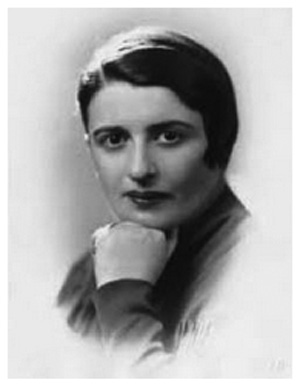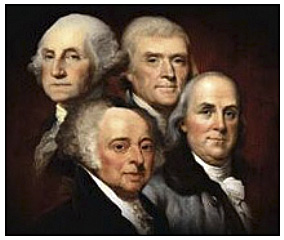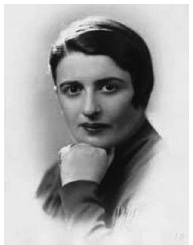
- Articles
The Political Spectrum (Part II) — The Center: A Democracy or a Constitutional Republic?
Note: The article below written years ago served as a springboard for a couple of chapters in Dr. Faria’s book, Contrasting Ideals and Ends in the American and French Revolutions published in December 2024 by Cambridge Scholars Publishing, Newcastle upon Tyne, UK. The article was fully expanded, revised, and updated for the chapter in that book, which is frankly much improved. — Editor. https://www.cambridgescholars.com/product/978-1-0364-1560-0. Let’s remember that we still live in a Constitutional Republic under the rule of law (although it has rapidly being eroded by design as well as ignorance), and not in a social democracy, which is mob rule directed today by an oligarchic plutocracy that includes the MSM, the socialist Democrat establishment, and the country club, globalist Republicans (RINOS). The Founding Fathers held that man’s constitutional rights were God-given and inalienable. Although the government was, and remains, the guarantor of those rights, it was ultimately on the people themselves that those inalienable rights rested. The informed citizenry were to be the ultimate enforcers, and the Second Amendment itself was to be the vehicle by which that right was to safeguard and secure all others.—Dr. Miguel A Faria
The Founding Fathers of this great nation designed a Republican form of government. By this, they meant a government under the rule of law and not the capricious rule of man, under a written constitution whose main function is to clearly demarcate the limits of authority of the federal government. This constitution contains the principle of separation of power between the three branches of government — executive, legislative, and judicial — and a further check on authority, a principle of balance of power, not only between the three aforementioned branches, but also between the federal government and those of the respective states. These series of checks and balances in the U.S. Constitution prevent the usurpation of power by any one branch of government, or the outright establishment of tyranny of the majority (i.e., mob rule) at the expense of weaker minorities.
But a Republican form of government was created and intended for a vigilant and informed citizenry, who would keep a watchful eye on the government and jealously guard their liberties like precious jewels. Failure to maintain this watch, would lead to the leveling of society, the erosion of individual liberty, and the loss of the Republic.
The U.S. Founding Fathers created for Americans a Constitutional Republic, which they considered a moderate form of government, at the Constitutional Convention in Philadelphia in 1787 after the defeat of the British army in the American Revolution. The American Founders, such as George Washington, Thomas Jefferson, John Adams, James Madison, Ben Franklin and the other well-known patriots, rejected direct democracy as a government subject to mass demagoguery, a government directed not by the judicious rule of law, but by the capricious rule of man.(1)

And thus, James Madison, the Master Builder of the Constitution, wrote, “A pure democracy can admit no cure for the mischiefs of faction. A common passion or interest will be felt by a majority, and there is nothing to check the inducements to sacrifice the weaker party. Hence it is, that democracies have ever been spectacles of turbulence and contention; have ever been found incompatible with personal security or the rights of property; and have, in general, been as short in their lives as they have been violent in their deaths.”(2)
So when the Founding Fathers drafted the American Constitution they incorporated the thoughts of Scottish professor Sir Alex Fraser Tytler (1714-1778) of the University of Edinburgh, “A democracy cannot exist as a permanent form of government. It can only exist until the voters discover they can vote themselves largess from the public treasury. From that moment on, the majority always votes for the candidates promising the most benefits from the public treasury, with the result that a democracy always collapses over loose fiscal policy, always followed by dictatorship.”
And so, to protect the young Republic from falling prey to majoritarian mass democracy, the founders added further checks such as the process, rather than the popular election of president and vice president.
They also established, for example, in , two exacting processes for Amending the Constitution, including the requirement of two-thirds Congressional and three-fourths state ratification majorities, rather than simple majorities; Treaties approved by two-thirds of the Senate; Impeachment by majority vote in the House of Representatives but Conviction by two-thirds super majority of the Senate; the power of the veto in the hands of the president that can only be overwritten by two-thirds of both houses of Congress, etc.
Because of the wisdom of the U.S. Founders in establishing a representative Constitutional Republic rather than a mass Democracy, these United States have been blessed with the freedom and prosperity that is the envy of the world. It’s precisely because of the American Constitution with its checks and balances, separation of powers, provisions for limited governance (with protection for individual rights), and indirect representation for the election of president and vice president — that we have enjoyed fruits of political stability and economic prosperity, almost uninterruptedly for 200 years.
Other types of government — “people’s republics,” social democracies, and dictatorships of majoritarian or oligarchical leanings — have come and gone, blown by the winds of instability, oppression and/or economic failure. Not so for the American Constitutional Republic — it has grown strong, navigating steadily through rough seas while the governments of other nations wrecked and perished. And so have floundered great empires, such as the Empire of Japan, the USSR, Mussolini’s Fascist Total State in Italy, but the great U.S.A. is still here, still a beacon of freedom in the world.

The American Founding Fathers chose this type of government because of their vast knowledge of history, philosophic consideration, and almost instinctively, because they also understood unchanging human nature. In their wisdom and their vast knowledge of history (particularly their expressed knowledge of events leading to the fall of Athenian democracy and the death knell of the Roman Republic, which had after nearly five centuries fallen prey to demagoguery and mobocracy), the U.S. Founders gave Americans a representative Republican government, a moderate government, enshrined in a Republic that has been resilient, enduring, and tested.
In 1787 when the Framers finally completed the Constitution, it was — and remains — the greatest document ever drafted for self-governance, written by the hearts and minds of men but inspired by the wisdom of the ages, if not the hand of Nature’s God. When a woman asked Benjamin Franklin, what kind of government have you given us? He replied judiciously, “A republic, Ma’am, it you can keep it.”(1)
As left-of-center Democrats, most of who consider themselves liberals or moderates, and right-of-center Republicans, most of whom call themselves moderates or conservatives, it would be wise to pause and consider two propositions. First is the derivation of the terms “Democrats” and “Republicans,” not only in American but also in world history; they were not the names of American parties created in a vacuum, but derived in references to the ancient Athenian democracy of the Greeks and ancient Republic of the Romans. The modern U.S. Democratic Party evolved directly from the Jacksonian Democracy ushered in by President Andrew Jackson (1829-1837). The Republican Party comes down to us as the Grand Old Party (GOP) of Abraham Lincoln (1861-1865). Their names, nevertheless, reveal their origins and derivations of political ideals.
Secondly, we should consider those party labels and concepts, and in terms of history consider where we have been and where we are headed. And as we contemplate the position of the pendulum of political power, swinging from right to left, should we ask ourselves, is it still oscillating?
I believe the pendulum is suspended in the political left, regardless of the political party in power. The Democrat Party is now at the range of the European Social Democrats, espousing more and more socialism without saying so, calling it disingenuously “fairness,” political progress, or “consensus-building”!

And what about the Republicans? Scared of the power of the mainstream media, which is very liberal and in general fairly tilted to the left in the political spectrum, the center of the party is frightened of its own shadow. Nevertheless, Republicans, Libertarians, and Objectivists (i.e., the political philosophy of Ayn Rand [1905-1982] the great Russian-American author, novelist and thinker) believe the functions of government to be limited to those immediately enumerated in the U.S. Constitution and espoused in the Declaration of Independence: the protection of life, liberty, and property, so that we can all pursue our own health and happiness! The Democrats would like nothing more than to change the constitution into a malleable “living document,” that ends up meaning nothing and can be violated at will for their modern political philosophy, which is wealth redistribution and power to the state at the expense of the individual liberty!
The new dynamo of the GOP is on the right, the Tea Party movement, and thus the media has done its best to abuse, disabuse, and discredit the movement with untrue aspersions of its own creation. The Tea Party is instructive for it has aspects of conservatism, libertarianism, and Objectivism — all philosophic concepts of the right. It is considered “dangerous” by statist critics because it may bring victory to conservative Republicans, but not because of anarchistic tendencies, far from it. In words and deeds, American Democrats, including President Barack Obama and Democrat Minority House Leader Nancy Pelosi, are way closer to the ideals of Social Democracy and Marxism than Congressman Ron Paul (R-TX) and his son, Senator Rand Paul (R-KY) are closer to anarchism and Mikhail Bakunin (you will learn about this man and the extreme right in Part III of this series). The Tea Party simply stands for maximum individual liberty with responsibility, government limited by the shackles of the Constitution, individual autonomy, minimalist taxation, foreign policy dictated only by our own best national interest, and legal immigration. As to the leftism and wealth redistribution schemes of the Democratic party, consider how much of Karl Marx’s Communist Manifesto have become entrenched in our political, social, and economic life.
I invite you to peruse my article on this subject entitled “Freedom versus Equality (Part I)” posted on this website. Those readers, who have so far now read the first two parts of this “Political Spectrum” series, may not have failed to notice the observation that Republican forms of government tend to attract men imbued with laws, methods and procedures, and often willing to negotiate and compromise, as to run the ship of state. Mass democracies in history frequently tend to inspire popular demagogues who make promises and pander to the people as to curry favor with the voting electorate and gain power. Sometimes these democrats are good men who devote themselves to the general welfare; occasionally they are even wise; more often they are mediocrities who do their best. Not infrequently these “public servants” are imperious, self-serving, even corrupt men, who violate the trust the public has placed in their offices. Republican and democratic forms of government limit the damage mediocrities or venal men can do because their power is limited. But as we have seen in “Part I: The Totaliarian Left from Communism to Social Democracy,” totalitarian states and communist regimes, the worst men imbued with hatred, evil and megalomania, men who brutally eliminate their perceived political opposition (including former friends and foes alike) and use police state terror — ascend to and attain absolute power, precisely because they are the most ruthless. And once in power, only their deaths can end the ghastly collectivist nightmares and their reigns of totalitarian terror.
I will end now by inviting the reader to further investigate on their own the freedom philosophies of the Right, Objectivism and Libertarianism. Scholarly and popular articles on these political philosophies are today much in vogue and abound. Let us just say that I believe that the old of Great Britain in the 19th century led down the road to the modern American conservatism and libertarianism of today. And when England ruled the seas at the time of Queen Victoria, Classical Liberalism, in my opinion, reached its apogee, when both the Conservative Party of Benjamin Disraeli (i.e., the Tories) and the Liberal Party of William Gladstone ruled alternatively the British empire, a free and prosperous empire where the sun never set, and Britannia ruled the waves! And these United States of America is her natural heir!
Read Part III or Part I of this article.
References and Notes
1) This material comes from my published essay titled The Fall of Fidel Castro (Part II): A Sociali(ist) Democracy or a Constitutional Republic for Cuba?
2) No one was more responsible for our form of government than James Madison, and thus to the interested reader, I recommend: James Madison, A Biography by Ralph Ketcham, 1990. A comprehensive and honest biography of the U.S. Constitution’s Master Builder.
Written by Dr. Miguel A. Faria
Dr. Miguel A. Faria, Jr. is a former Clinical Professor of Surgery (Neurosurgery, ret.) and Adjunct Professor of Medical History (ret.) Mercer University School of Medicine; Former member Editorial Board of Surgical Neurology (2004-2010); Member Editorial Board of Surgical Neurology International (2011-present); Recipient of the Americanism Medal from the Nathaniel Macon Chapter of the Daughters of the American Revolution (DAR) 1998; Ex member of the Injury Research Grant Review Committee of the Centers for Disease Control and Prevention (CDC) 2002-05; Founder and Editor-in-Chief of the Medical Sentinel (1996-2002); Editor Emeritus, the Association of American Physicians and Surgeons (AAPS); Author, Vandals at the Gates of Medicine (1995), Medical Warrior: Fighting Corporate Socialized Medicine (1997), and Cuba in Revolution: Escape From a Lost Paradise (2002).
An edited version of this article was published on October 14, 2011 at GOPUSA.com.
This article may be cited as: Faria MA. The Political Spectrum (Part II) — The Center: A Democracy or a Constitutional Republic? HaciendaPublishing.com, October 14, 2011. Available from: https://haciendapublishing.com/the-political-spectrum-part-ii-the-center-a-democracy-or-a-constitutional-republic/.
Copyright ©2011 Miguel A. Faria, Jr., M.D.
3 thoughts on “The Political Spectrum (Part II) — The Center: A Democracy or a Constitutional Republic?”
Food for thought Today —In politics, nothing happens by accident. If it happens, you can bet it was planned that way.” — FDR
“A hand from Washington will be stretched out and placed on every man; business; the eye of the federal inspector will be in every man’s counting house…the law will of necessity have inquisitional features; it will provide penalties; it will create complicated machinery. Under it, men will be hauled into courts distant from their homes. Heavy fines imposed by distant and unfamiliar tribunals will constantly menace the taxpayer.”— Virginia House Speaker Richard E. Byrd, 1910. Forecasting the consequences for future generations if a national income tax was ever enacted. It was indeed implemented in 1913 (XVI Amendment), along with the Federal Reserve, and the XVII Amendment (i.e., the popular election of the US Senate that deprived the states of representation in the federal government).
“Unless the people, through unified action, arise and take charge of their government, they will find that their Government has taken charge of them. Independence and liberty will be gone and the general public will find itself in a condition of servitude to an aggregation of organized and selfish ambitions.” — Calvin Coolidge, 30th President of the United States (1903-1929,) with Alfred E. Smith. Joint statement issued on October 12, 1932.
“The Nation that forgets its’ Defenders will be itself forgotten.” And “Don’t expect to build up the weak by pulling down the strong.” — Calvin Coolidge, Reagan’s favorite President.
Our country has not been lucky…. It was decided to carry out this Marxist experiment on us… It has simply pushed us off the path the world’s civilized countries have taken…. In the end, we proved that there is no place for this idea.” After the fall of the Evil Empire, Boris Yeltsin, Moscow, June 1, 1991.
“I am only one; but still I am one. I cannot do everything; but still I can do something; and because I cannot do everything, I will not refuse to do the something that I can do. Edward Everett Hale (1822-1909) Author of the classic, “The Man without a Country (1863).”
“The direction of Plato’s thoughts was towards establishing the existence of two worlds: the world of appearances (or of Opinion) in which the ignorant are content to live, and the spiritual world (the world of Knowledge) which is the only home of the wise. “— Aubrey de Selincourt, The World of Herodotus, 1962, p. 344.
Courage is the most important virtue because, without courage, it is impossible to practice the other virtues. − Aristotle
A patriotic American is a vigilant and informed citizen, who knows that people band together to form governments only with their consent; that the function of government is to protect the inalienable rights to life, liberty, and the pursuit of happiness; the sanctity of contracts, not entered by fraud or by force, and the right to self-defense and family protection. — Dr. Miguel Faria, America, Guns, and Freedom (2019) 😎
This quote says it all…..